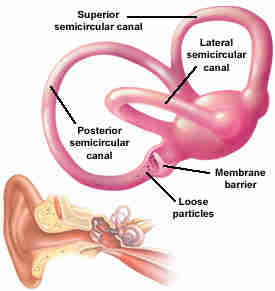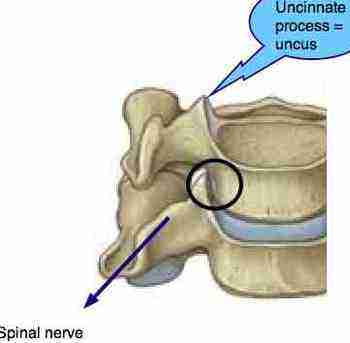- Home
- Find good DC
- Changing Chiropractors
Changing chiropractors
Changing chiropractors suggests you need good reasons to move but there's no room for sentiment.

This page was last updated by Dr Barrie Lewis on 27th January, 2019.
Moving from one doctor to another is really not that difficult a decision and there's no place for sentiment; consider your own interests and not whether he or she will be offended.
There are some clear cut criteria; let's consider some of the more difficult ones first.
You have been attending a chiropractor for three years and have enjoyed good care during that time. Then something changes; you're not quite sure what but you know that it's not the same as you experienced in the early days.
I remember with some horror how I nearly left the chiropractic profession some twenty years ago. I even went as far as to apply for three jobs outside of my chosen work.
For five years I hadn't taken a proper holiday. Long weekends here and there were enjoyed, but never the proper allotment that all people need who are in jobs with relentless stress. On any given day there were five to ten patients with major problems who were looking to me for solutions.
Added to that the financial demands of a home with a growing family were mounting. Children's schooling was beginning to cost an arm and a leg and long hours at the chiropractic coalface was the only solution.
I was fortunate on two fronts; one was a caring wife who could see
plainly what was happening but I resisted her solution with the usual
stubborn streak of a male in full flight.
If I burn my candle at both ends it will not last the night; but, ah, my friends and, oh, my foes it makes a glorious sight.
It's been said that when you start to miss your religious devotions with any regularity, God is the first to notice, then family and friends and, only at the last, does the stubborn fool realise what is going wrong.
So, your chiropractor has given you good care; now gradually something has changed. He's become grumpy perhaps; the examination is cursory. You attend him with a new problem and you realise he's dropped the ball.
You notice the change, but he or she hasn't; not yet, one might add, and perhaps he never will.
Secondly, unbeknown to me, my own medical doctor was going through the same burn out. An exceptionally gifted general practitioner, he shocked his patients by abruptly resigning and moving to another city where he purchased a small printing business that he thought would be less stressful. He told me all about it some months later. For the first time I started to be more honest with myself.
So you realise your doctor no longer really seems to care; gone are the days when he listened intently to your story and examined you carefully and thoroughly. You start to think about changing chiropractors and rightly so. These alterations happen slowly; it's not an overnight event.
You may want to talk to him about it, or perhaps you are just going to change horses. I was lucky; so were my patients. A professional psychologist who had consulted me regularly for several years had the honesty and temerity to broach the subject. A smart man, he did it tactfully, explaining the three important functional parts of a holiday. A week will never suffice.
The good wife insisted on a complete four week break in our caravan; sense prevailed and I regained my equilibrium.
But your chiropractor doesn't come to his senses; the quality of your care has suffered and you don't feel like challenging him or her; it's time to make a change. I lost numerous patients myself whilst in my crisis, before I considered the pyschologist's holiday stress tips.
Then perhaps you just don't click with the chiropractor who was recommended by your best friend for the pain and tingling in your arms and hands. There's something indefinable about it; your friend thinks he is the best thing since sliced bread, but you are uncomfortable. Don't feel guilty; changing doctors is not betrayal. It's common sense in certain circumstances.
Doctors of every ilk often have close and intimate relationships with many of their patients; it's the nature of the beast and every man, and those he cares for need to take care. Is your chiropractor becoming just a little too friendly? Have his hands strayed, accidentally of course, once or twice? Sexual advances and innuendos must must be nipped in the bud and changing has become a matter of urgency.
I was myself once accused of a sexual offense after examining a patient's breast; I won't go into the circumstances, except to say the woman was not offended; she knew there was a problem; but her husband did. It led to considerable anguish and a painful court case that eventually cleared my name. Needless to say, before making serious accusations you need to be sure of your facts, and if in doubt, changing chiropractors sooner rather than later is advisable.
Now for some of the less complex reasons for changing chiropractors. You have been suffering from vertigo and have heard that the problem could be in the neck which it can. You also have cervical spine pain and stiffness.
However, in my book, every other avenue, and especially the Epley manoeuvres needs to be considered before cervical manipulation for vertigo.
I have had numerous patients over the years for whom the Epleys did nothing and adjusting the neck fixed this most awful condition. But I've also had one who became much worse and started vomiting after the treatment. Chiropractic research is unequivocal; beware of the dizzy patient.
It matters not what the condition; you are either not getting better with his or her treatment or you feel uncomfortable with what is proposed. Don't feel anxious; get a second opinion.
As a rule of thumb, if you are not showing any improvement within three weeks, or are getting worse, it's time to consider changing chiropractors; not after six months. Of course that applies equally to the treatment your medical doctor may be offering for vertigo dizziness or headaches, for example.
Changing Chiropractors
Changing chiropractors; another classic example is when you don't like what your are hearing at the report of findings, after the initial examination. I recently had a letter from an angry patient at "love hate" when he was told he would need treatment daily for three weeks, then three times a week... in all it came to ninety treatments in the first year.
But then perhaps your chiropractor is being honest and there simply isn't an easy solution. For example, research shows that if you've had neck pain for over six months, no treatment is likely to cure your pain; not chiropractic nor physiotherapy and not medication or surgery either. On telling a patient recently that I could help her neck, but not cure it, she was miffed and didn't return. She wanted a permanent solution.
A second opinion is always in order if you are not sure of the chiropractor's diagnosis and recommendation; perhaps a cure doesn't exist and you decide to go for surgery thinking that will "cure" your problem. It most likely won't either; and it's generally best to try the more conservative treatment first before the more radical.
That might be a weekly massage and a gentle set of exercises before embarking on a course of chiropractic; but then you've probably tried that already.
Find a good chiropractor
However, before changing chiropractors, do your homework and make sure you are making a move to someone whom you've heard is more knowledgeable or skilled in the current problem you are experiencing. Find a good chiropractor with whom you click, not just with anyone.

There are two parts to this section. The first is to discover a chiropractor who is conscientious and competent. Every profession has lazy members, and in every class including, chiropractors, fifty percent graduate below the mean.
Of course, graduating in the top half of the class is no guarantee that you have a good chiropractor. He or she also needs the correct motor skills to provide a good adjustment; they must have a caring heart, and many other qualities.
Just as you would choose a surgeon to repair your ankle, choose your chiropractor too; do your homework and, where necessary, changing chiropractors may be sensible.
Vertigo dizziness
Vertigo dizziness demands you find someone whose strengths lie in keeping with your
problem. Don't consult a sports chiropractor who is so skilled that he's
been elected to his country's Olympic team, but has never heard of the
Epley manoeuvers, if you are suffering from vertigo dizziness; you may soon be changing chiropractors.
The most common cause is loose crystals in one of the semi-circular canals and manipulation of the neck is not the solution. Changing chiropractors from the person who very successfully treats you for your sports injuries may be necessary for a season for a condition in which he or she is less skilled.

Tingling in arms and hands
Tingling in arms and hands is the most common subject in the many disturbing letters that I receive at this site; more than any other. It's complex and often severe; and may be a reason for changing chiropractors.
It's also the underlying cause of many of the shoulder, elbow and hand conditions.
Whilst we think Chiropractic has a good solution, it takes hard work and dedication on the part of your doctor; and patience on your part. Sometimes surgery is the only solution, but it's always sensible to start with more conservative treatment like adjustments of the spine.
Incidentally, don't even consider going to a physical therapist for a chiropractic adjustment. Would you consult a dentist for an appendectomy?
And changing chiropractors may be expedient for a time if you find your DC was the solution to your foot pain, but has little experience in treating difficult cervical spine conditions.
Do we always win? No, we don't. If you have massive uncovertebral degeneration of the joints of Luschka after a whiplash injury twenty years ago then sometimes risky and expensive spinal surgery is the only option; after all conservative care has been explored.
Use the search engine in the navigation bar to find more information about unusual terms like those.

Nutrition
Sometimes you've been here and there changing chiropractors and doctors too, and still your condition doesn't respond; perhaps a good long look at your diet, and how much exercise you are doing may be a consideration.
Getting onto an anti inflammatory diet may be the solution. There's no better place than to start with eggs Florentine made with beet greens.
How to cook beet greens is very basic, but use your imagination and add some of your own favourite dark leafy vegetables; this dish will provide you with the B12, folate, choline and betaine needed to methylate toxic homocysteine, a protein metabolite. It's highly inflammatory.
The beta carotenes in beet greens also inhibit the influence of phytates in inhibiting the absorption of important minerals such as iron by keeping them soluble; just ask Popeye.
If you use free range eggs then they are very rich in omega-3 too, another anti inflammatory fatty acid.
Useful links
- Anti inflammatory omega 3.
- Chiropractic Conditions.
- Free range eggs. Web: http://tinyurl.com/482zdrfa
- Chiropractic association of South Africa
When browsing these links use right click and "Open Link in New Tab", or you may get a bad gateway signal.
- Home
- Find good DC
- Changing Chiropractors
Did you find this page useful? Then perhaps forward it to a suffering friend. Better still, Tweet or Face Book it.
